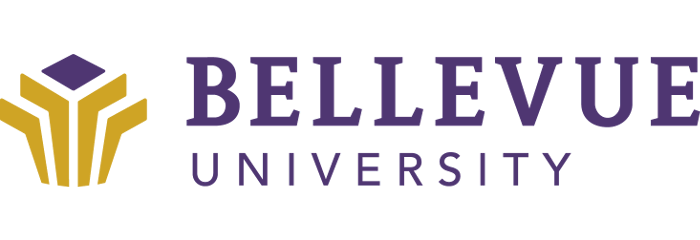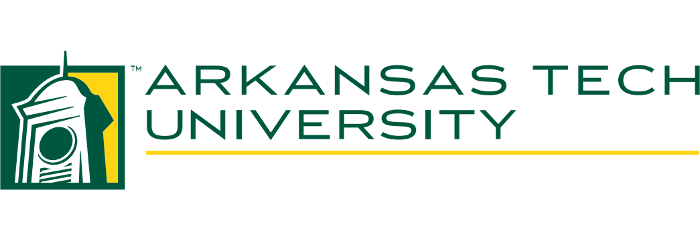2025 Best Online Emergency Management Degrees
An online emergency management degree is designed to provide students with the technical expertise, best practices, and problem-solving skills to prevent and respond to all types of crisis situations. Graduates of these programs work for local, state, and government agencies, as well as nongovernmental organizations and private businesses.
Key Takeaways:
- Embry-Riddle Aeronautical University - Worldwide excels with a median graduate earning of $64,823 for its emergency management bachelor degree online.
- Purdue Global leads in online enrollment with 33,392 students at the undergraduate level, placing the university in the top 1% of schools nationally.
- The University of Central Missouri boasts a perfect recommendation rate of 100%, and it hosts an online Bachelor of Science in Crisis and Disaster Management.
Our methodology for ranking emergency management degrees online focuses on evaluating alumni salaries as well as popularity among online students. We use Salary Scores and online enrollment data to determine the best long-term financial investments for your education.
2025 Best Online Emergency Management Degrees
#1
- Salary Score: A-
- Median Earnings: $64,823
- Online Enrollment: 10,568 enrolled
- Annual Tuition: $11,185
Online degree: Bachelor of Science in Homeland Security - Emergency Management
Why we like them: ERAU excels with a high median earnings statistic for its graduates, standing at $64,823, placing it in the top 19% nationwide. The program's specific focus on homeland security caters to the evolving demands of the security landscape. Additionally, the program integrates the FEMA Emergency Management Institute Professional Development Series certificate, enhancing your employability after graduation. The inclusion of practical, hands-on experiences and a robust curriculum ensures you are well-prepared to tackle real-world security challenges.
Key Metrics:
- Salary Score: A-
- Median Earnings: $64,823
- Financial Aid Recipients: 60%
- Avg. Aid Package: $3,776
- Avg. Graduation Rate: 20%
- Retention Rate: 59%
- Recommend Rate: 57%
- School Type: Nonprofit (Private)
#2
- Salary Score: B+
- Median Earnings: $62,271
- Online Enrollment: 1,728 enrolled
- Annual Tuition: $17,482
Online degree: Bachelor of Science in Emergency Services Management
Why we like them: The standout metric is the median earnings of graduates, which is $62,271. This ranks the emergency management program within the top 28% for earning potential among similar programs, indicating strong career prospects for you post-graduation. The high average financial aid package of $13,396 is another distinguishing factor, ensuring affordability. The curriculum delves into topics like natural disaster planning, terrorism in the modern world, Homeland Security law, and financial management of emergency response organizations, preparing you for leadership roles in emergency services.
Key Metrics:
- Salary Score: B+
- Median Earnings: $62,271
- Financial Aid Recipients: 97%
- Avg. Aid Package: $13,396
- Avg. Graduation Rate: 44%
- Retention Rate: 56%
- Recommend Rate: 100%
- School Type: Nonprofit (Private)
#3
- Salary Score: N/A
- Median Earnings: N/A
- Online Enrollment: 33,392 enrolled
- Annual Tuition: $14,445
Online degree: Bachelor of Science in Fire and Emergency Management
Why we like them: Purdue Global's online enrollment places it in the top 1% of schools with the highest number of online students, highlighting its strong online presence. Another benefit is the university's overall review rating of 3.72 out of 5, reflecting a generally positive student experience. The program prepares students for managing emergency services during disasters, terrorist incidents, and fires. Recognized by the U.S. Fire Administration, this degree offers offers 100% online courses, optional internships, and the opportunity to specialize in Business Foundations for additional management skills.
Key Metrics:
- Salary Score: N/A
- Median Earnings: N/A
- Financial Aid Recipients: 60%
- Avg. Aid Package: $8,815
- Avg. Graduation Rate: 28%
- Retention Rate: 17%
- Recommend Rate: 75%
- School Type: Nonprofit (Public)
#4
- Salary Score: N/A
- Median Earnings: N/A
- Online Enrollment: 11,330 enrolled
- Annual Tuition: $6,600
Online degree: Bachelor of Science in Emergency Management - Emergency Medical Services
Why we like them: CSU has 11,330 undergraduates enrolled online, placing it among the top 2% of online schools nationwide. CSU's emergency management program requires 120 credits and permits transferring up to 90 credits, accommodating prior learning. Courses like Disaster Mitigation and Preparedness and EMS Roles During Emergencies and Disasters ensure a well-rounded curriculum that combines theoretical knowledge with practical skills. We also like to see that students and alumni rate the school 3.98 out of 5, indicating positive experiences.
Key Metrics:
- Salary Score: N/A
- Median Earnings: N/A
- Financial Aid Recipients: 42%
- Avg. Aid Package: $4,154
- Avg. Graduation Rate: 25%
- Retention Rate: 42%
- Recommend Rate: 78%
- School Type: For Profit
#5
- Salary Score: N/A
- Median Earnings: N/A
- Online Enrollment: 10,105 enrolled
- Annual Tuition: $8,790
Online degree: Bachelor of Science in Emergency Management
Why we like them: Bellevue's online enrollment figures are remarkable, with 10,105 students engaged in remote learning, placing the university among the top 2% in online student populations. This robust enrollment indicates a trusted and scalable online education system that you would be part of. This program offers hands-on learning through practical experiences, such as capstone courses partnering with experienced disaster management practitioners. The curriculum is designed to cover crisis readiness, emergency communications, and national response systems.
Key Metrics:
- Salary Score: N/A
- Median Earnings: N/A
- Financial Aid Recipients: 76%
- Avg. Aid Package: $4,990
- Avg. Graduation Rate: 41%
- Retention Rate: 51%
- Recommend Rate: 68%
- School Type: Nonprofit (Private)
#6
- Salary Score: N/A
- Median Earnings: N/A
- Online Enrollment: 9,162 enrolled
- Annual Tuition: $27,050
Online degree: Bachelor of Arts in Emergency Management
Why we like them: Saint Leo boasts a substantial online enrollment of 9,162 students, placing it in the top 2% of universities with the highest online student populations. This indicates a considerable capacity to deliver quality education on a large scale. What's also commendable is that 100% receive financial aid, with an average aid package of $21,053. A unique aspect of the emergency management program is the offered concentration in Fire Science, which includes courses such as Principles of Fire and Emergency Services, and Fire and Emergency Services Administration.
Key Metrics:
- Salary Score: N/A
- Median Earnings: N/A
- Financial Aid Recipients: 100%
- Avg. Aid Package: $21,053
- Avg. Graduation Rate: 49%
- Retention Rate: 54%
- Recommend Rate: 61%
- School Type: Nonprofit (Private)
#7
- Salary Score: N/A
- Median Earnings: N/A
- Online Enrollment: 3,480 enrolled
- Annual Tuition: $15,714
Online degree: Bachelor of Applied Science in Emergency Service Administration
Why we like them: Pikes Peak has 3,480 online students engaging in remote learning at the undergraduate level, placing it among the top 12% of institutions with significant online student populations. Additionally, the school's impressive GI Bill online enrollment of 1,983 military students positions it in the top 5%, showcasing strong support for military personnel. The program requires a practical focus on emergency service administration. Overall, the program focuses on enhancing community resilience, managing multi-agency collaborations, and applying critical thinking in high-pressure situations.
Key Metrics:
- Salary Score: N/A
- Median Earnings: N/A
- Financial Aid Recipients: 82%
- Avg. Aid Package: $5,207
- Avg. Graduation Rate: 17%
- Retention Rate: N/A
- Recommend Rate: 50%
- School Type: Nonprofit (Public)
#8
- Salary Score: N/A
- Median Earnings: N/A
- Online Enrollment: 2,902 enrolled
- Annual Tuition: $17,335
Online degree: Bachelor of Science in Emergency Management
Why we like them: South College hosts 2,902 students participating in online courses. If you were to compare South College's online enrollment with that of other universities or colleges, it would be among the top 16%, highlighting the institution's strong online education infrastructure. The Bachelor of Science in Emergency Management at South College helps prepare students for real-world challenges in the field. It covers 192 credit hours, allowing for an in-depth exploration of disaster response, risk assessment, and public safety, equipping students with the essential skills to excel in their careers.
Key Metrics:
- Salary Score: N/A
- Median Earnings: N/A
- Financial Aid Recipients: 88%
- Avg. Aid Package: $13,048
- Avg. Graduation Rate: 42%
- Retention Rate: 59%
- Recommend Rate: 72%
- School Type: For Profit
#9
- Salary Score: N/A
- Median Earnings: N/A
- Online Enrollment: 2,687 enrolled
- Annual Tuition: $22,032
Online degree: Bachelor of Homeland Security and Emergency Management
Why we like them: With 2,687 students enrolled online, UAF is in the top 17% for this metric, showcasing its significant digital presence and commitment to distance learning. Additionally, the student-faculty ratio of 11:1 ensures personalized attention, making sure you receive individualized support throughout your academic journey. Another commendable aspect is that 100% of UAF students receive financial aid. The program covers strategic planning and disaster response to prepare you for high-demand careers in emergency response, with emphasis in homeland security, fire administration, and cybersecurity.
Key Metrics:
- Salary Score: N/A
- Median Earnings: N/A
- Financial Aid Recipients: 100%
- Avg. Aid Package: $8,704
- Avg. Graduation Rate: 35%
- Retention Rate: 70%
- Recommend Rate: 87%
- School Type: Nonprofit (Public)
#10
- Salary Score: N/A
- Median Earnings: N/A
- Online Enrollment: 2,188 enrolled
- Annual Tuition: $21,718
Online degree: Bachelor of Science in Emergency Management and Disaster Science
Why we like them: The online enrollment at UNO is a standout feature, with 2,188 students engaging in remote learning. The school also boasts a recommendation rate of 96%, suggesting an extremely high level of satisfaction among those who have completed their degree here. Additionally, UNO's program offers a range of concentrations, such as Criminology and Criminal Justice, Fire Service Management, and Logistics Management, which allows you to tailor your learning to your specific career goals.
Key Metrics:
- Salary Score: N/A
- Median Earnings: N/A
- Financial Aid Recipients: 92%
- Avg. Aid Package: $8,180
- Avg. Graduation Rate: 50%
- Retention Rate: 74%
- Recommend Rate: 96%
- School Type: Nonprofit (Public)
#11
- Salary Score: N/A
- Median Earnings: N/A
- Online Enrollment: 2,062 enrolled
- Annual Tuition: $13,891
Online degree: Bachelor of Science in Emergency Management
Why we like them: ATU is among the top 23% of institutions with the largest number of online students. This indicates a well-established and scalable virtual learning environment beneficial for your education. Additionally, the university's commitment to financial aid is notable, with 95% of students receiving aid. The Bachelor of Science in Emergency Management at ATU integrates real-world scenarios and practical applications, allowing you to engage in service-based learning, conduct civic engagement projects, and function as a public information officer in course-specific roles.
Key Metrics:
- Salary Score: N/A
- Median Earnings: N/A
- Financial Aid Recipients: 95%
- Avg. Aid Package: $8,440
- Avg. Graduation Rate: 47%
- Retention Rate: 63%
- Recommend Rate: 81%
- School Type: Nonprofit (Public)
#12
- Salary Score: N/A
- Median Earnings: N/A
- Online Enrollment: 1,636 enrolled
- Annual Tuition: $8,700
Online degree: Bachelor of Applied Science Emergency Management - Homeland Security
Why we like them: Waldorf's online enrollment places it among the top 26% of institutions with a robust virtual community, having 1,636 students enrolled in online programs at the undergraduate level. The online degree in emergency management aligns with current industry needs by focusing on the essential skills and knowledge needed for a career in managing natural and man-made disasters. The Homeland Security concentration covers terrorism, security operations, and weapons of mass destruction, aligning with the foundational principles of the Department of Homeland Security.
Key Metrics:
- Salary Score: N/A
- Median Earnings: N/A
- Financial Aid Recipients: 99%
- Avg. Aid Package: $17,359
- Avg. Graduation Rate: 26%
- Retention Rate: 70%
- Recommend Rate: 94%
- School Type: For Profit
#13
- Salary Score: N/A
- Median Earnings: N/A
- Online Enrollment: 1,616 enrolled
- Annual Tuition: $25,936
Online degree: Bachelor of Science in Homeland Security and Emergency Management
Why we like them: ISU excels in the realm of online education, ranking 13th for online popularity. ISU hosts 1,616 students pursuing studies remotely, placing ISU in the top 26% of institutions offering online degrees. Additionally, nearly all students (99%) receive financial aid, underscoring ISU's commitment to making education financially accessible. The curriculum stands out with start dates every eight weeks and asynchronous delivery, enhancing flexibility for working adults and busy students.
Key Metrics:
- Salary Score: N/A
- Median Earnings: N/A
- Financial Aid Recipients: 99%
- Avg. Aid Package: $9,145
- Avg. Graduation Rate: 36%
- Retention Rate: 71%
- Recommend Rate: 86%
- School Type: Nonprofit (Public)
#14
- Salary Score: N/A
- Median Earnings: N/A
- Online Enrollment: 1,555 enrolled
- Annual Tuition: $33,639
Online degree: Bachelor of Science in Public Administration - Emergency Management
Why we like them: UIU earns recognition due to its substantial online enrollment of 1,555 students, placing it in the top 27% of universities with the largest online student populations. This impressive standing indicates a large virtual campus environment conducive to collaborative learning and peer engagement. Additionally, 100% of UIU students benefit from financial aid, with the average financial aid package amounting to $25,788. The program is designed to help students adapt to changing political and social conditions while preparing for roles in public safety, administration, and policy analysis.
Key Metrics:
- Salary Score: N/A
- Median Earnings: N/A
- Financial Aid Recipients: 100%
- Avg. Aid Package: $25,788
- Avg. Graduation Rate: 47%
- Retention Rate: 57%
- Recommend Rate: 52%
- School Type: Nonprofit (Private)
#15
- Salary Score: N/A
- Median Earnings: N/A
- Online Enrollment: 1,550 enrolled
- Annual Tuition: $10,996
Online degree: Bachelor of Applied Arts and Sciences in Emergency Management Administration
Why we like them: WT has 1,550 students engaging in distance learning, placing it in the top 27% nationwide. Complementing this is its impressive 95% recommendation rate, which reflects the high level of satisfaction among graduates. The emergency management administration program at WT offers a 100% online experience that's accessible from anywhere. Notably, the program has been serving first responders and emergency management professionals since 2002, indicating a strong, established curriculum.
Key Metrics:
- Salary Score: N/A
- Median Earnings: N/A
- Financial Aid Recipients: 91%
- Avg. Aid Package: $7,500
- Avg. Graduation Rate: 45%
- Retention Rate: 68%
- Recommend Rate: 95%
- School Type: Nonprofit (Public)
#16
- Salary Score: N/A
- Median Earnings: N/A
- Online Enrollment: 1,318 enrolled
- Annual Tuition: $13,119
Online degree: Bachelor of Science in Emergency Management
Why we like them: SUNY at Canton has substantial online enrollment of 1,318 students, making it a prominent choice among online schools. The emergency management degree online integrates theory, doctrine, and praxis aimed at equipping you with practical skills in disaster response. It offers seven-week sessions and flexible modalities and emphasizes experiential education through virtual disaster simulations and real-world emergency operations planning. We believe this significantly enhances your readiness for professional roles in emergency management and related fields.
Key Metrics:
- Salary Score: N/A
- Median Earnings: N/A
- Financial Aid Recipients: 94%
- Avg. Aid Package: $10,081
- Avg. Graduation Rate: 46%
- Retention Rate: 69%
- Recommend Rate: N/A
- School Type: Nonprofit (Public)
#17
- Salary Score: N/A
- Median Earnings: N/A
- Online Enrollment: 1,217 enrolled
- Annual Tuition: $21,912
Online degree: Bachelor of Science in Emergency Management
Why we like them: JSU has an online enrollment of 1,217 students, positioning it near the top among similar programs and ensuring you become part of a well-established virtual learning community. Another significant benefit is the high recommendation rate of 94%, indicating strong satisfaction and positive outcomes among graduates. This program offers 120 semester hours, including 30 hours dedicated to emergency management education, complemented by minors in Homeland Security, Public Safety Telecommunications, or other approved minors.
Key Metrics:
- Salary Score: N/A
- Median Earnings: N/A
- Financial Aid Recipients: 100%
- Avg. Aid Package: $10,123
- Avg. Graduation Rate: 52%
- Retention Rate: 66%
- Recommend Rate: 94%
- School Type: Nonprofit (Public)
#18
- Salary Score: N/A
- Median Earnings: N/A
- Online Enrollment: 1,126 enrolled
- Annual Tuition: $23,050
Online degree: Bachelor of Arts in Emergency and Disaster Management
Why we like them: Ohio Christian has the #1 lowest student-to-faculty ratio on our entire list. With only eight students to every teacher, it's in the top 9% nationally for personalized attention. Additionally, this degree is offered 100% online in a flexible five-week format, making it an excellent option for busy adults. The curricula covers crisis management, hazardous materials response, and trauma-informed care while providing practical learning through exercises in planning, development, and evaluation of emergency operations. It prepares you for vital roles in both public and private sectors.
Key Metrics:
- Salary Score: N/A
- Median Earnings: N/A
- Financial Aid Recipients: 98%
- Avg. Aid Package: $12,560
- Avg. Graduation Rate: 34%
- Retention Rate: 61%
- Recommend Rate: 57%
- School Type: Nonprofit (Private)
#19
- Salary Score: N/A
- Median Earnings: N/A
- Online Enrollment: 659 enrolled
- Annual Tuition: $50,644
Online degree: Bachelor of Science in Emergency Management
Why we like them: Ranked at #19, SLU has a strong graduation rate of 81%. This achievement places SLU in the top 6% of institutions for student completion, indicating a high level of student satisfaction and effective academic support. Coupled with a commendable student-to-faculty ratio of 9:1, you can expect an environment conducive to academic success. The program covers all phases of emergency management — mitigation, preparedness, response, and recovery — through a multidisciplinary approach recognized by FEMA and the Department of Homeland Security.
Key Metrics:
- Salary Score: N/A
- Median Earnings: N/A
- Financial Aid Recipients: 99%
- Avg. Aid Package: $37,006
- Avg. Graduation Rate: 81%
- Retention Rate: 87%
- Recommend Rate: 92%
- School Type: Nonprofit (Private)
#20
- Salary Score: N/A
- Median Earnings: N/A
- Online Enrollment: 600 enrolled
- Annual Tuition: $17,453
Online degree: Bachelor of Science in Crisis and Disaster Management
Why we like them: One distinguishing feature is UCM's100% recommendation rate, signifying widespread satisfaction among graduates. UCM also excels in support for military students, as evidenced by its military enrollment percentile in the top 26%. The program's diverse focus areas include Business Continuity, Emergency Management, Emergency Services Management, and Environmental Hazards, which allow you to tailor your education to specific career goals. Unique features include earning FEMA Independent Study credentials and partnerships for EMT Certification, enhancing your employability.
Key Metrics:
- Salary Score: N/A
- Median Earnings: N/A
- Financial Aid Recipients: 100%
- Avg. Aid Package: $6,517
- Avg. Graduation Rate: 53%
- Retention Rate: 72%
- Recommend Rate: 100%
- School Type: Nonprofit (Public)
#21
- Salary Score: N/A
- Median Earnings: N/A
- Online Enrollment: 506 enrolled
- Annual Tuition: $22,050
Online degree: Bachelor of Arts in Disaster and Emergency Management
Why we like them: At Columbia SC, we appreciate that the curriculum emphasizes real-world skills such as communication and problem-solving. Notably, current members of the South Carolina State Firefighters' Association benefit from a 15% tuition discount, and there are no in-person requirements, making the program highly accessible and flexible. Furthermore, you can finish your degree with seven-week courses and benefit from free e-books, illustrating the program's commitment to accommodating the needs of working professionals and non-traditional students.
Key Metrics:
- Salary Score: N/A
- Median Earnings: N/A
- Financial Aid Recipients: 98%
- Avg. Aid Package: $16,089
- Avg. Graduation Rate: 55%
- Retention Rate: 55%
- Recommend Rate: 50%
- School Type: Nonprofit (Private)
#22
- Salary Score: N/A
- Median Earnings: N/A
- Online Enrollment: 362 enrolled
- Annual Tuition: $25,680
Online degree: Bachelor of Science in Emergency Management & Homeland Security
Why we like them: We highly regard PCT for its substantial military enrollment, demonstrating notable support for active military personnel. Specific to the program, the curriculum spans a range of topics, including bioterrorism, critical infrastructure, and emergency management operations. This breadth ensures you develop well-rounded expertise in dealing with various emergency scenarios. Notably, the program emphasizes hands-on training, requiring 300 hours of field experience and an internship. This field immersion is critical, as it equips you with real-world skills and applies academic knowledge in practical settings.
Key Metrics:
- Salary Score: N/A
- Median Earnings: N/A
- Financial Aid Recipients: 89%
- Avg. Aid Package: $7,254
- Avg. Graduation Rate: 46%
- Retention Rate: 77%
- Recommend Rate: 100%
- School Type: Nonprofit (Public)
#23
- Salary Score: N/A
- Median Earnings: N/A
- Online Enrollment: 219 enrolled
- Annual Tuition: $32,500
Online degree: Bachelor of Science in Emergency Management
Why we like them: Barry stands out in our rankings due to its high student review rating of 4.35 out of 5 and recommendation rate of 93%. These indicate that an overwhelming majority of students had positive experiences. The emergency management bachelor's at Barry uniquely integrates FEMA's National Emergency Management Basic Academy (NEMBA) curriculum, a distinction very few institutions can claim. The program emphasizes legislation, policies, and standards critical to the field, backed by experienced faculty who bring real-world expertise from local, state, and federal levels.
Key Metrics:
- Salary Score: N/A
- Median Earnings: N/A
- Financial Aid Recipients: 100%
- Avg. Aid Package: $24,466
- Avg. Graduation Rate: 39%
- Retention Rate: 56%
- Recommend Rate: 93%
- School Type: Nonprofit (Private)
#24
- Salary Score: N/A
- Median Earnings: N/A
- Online Enrollment: 214 enrolled
- Annual Tuition: $27,750
Online degree: Bachelor of Science in Emergency Planning and Management
Why we like them: Immaculata excels in providing a student-centric educational experience, evidenced by its impressive student-to-faculty ratio of 10:1, ensuring you receive individualized attention. Additionally, the high retention rate of 83% signals strong student satisfaction and support. The program's curriculum is strategically designed to incorporate FEMA certifications and practical field experiences, enhancing your resume and hands-on skills. Its unique distinction as the only bachelor’s degree in emergency management in the Philadelphia region and recognition by FEMA further elevate its appeal.
Key Metrics:
- Salary Score: N/A
- Median Earnings: N/A
- Financial Aid Recipients: 100%
- Avg. Aid Package: $15,749
- Avg. Graduation Rate: 61%
- Retention Rate: 83%
- Recommend Rate: 88%
- School Type: Nonprofit (Private)
#25
- Salary Score: N/A
- Median Earnings: N/A
- Online Enrollment: 48 enrolled
- Annual Tuition: $43,800
Online degree: Bachelor of Science in Emergency Services Administration
Why we like them: Adelphi is acclaimed for its notable retention rate of 85%, placing it among the top 14% of universities, showcasing a high level of student commitment and success. Further enhancing its attractiveness, Adelphi boasts a high average financial aid package of $28,826, situating it in the top 8% on a national scale. The program's unique advantage is the ability to translate professional experience, such as police academy work or military training, into academic credits, allowing you to potentially complete your degree in as few as four semesters.
Key Metrics:
- Salary Score: N/A
- Median Earnings: N/A
- Financial Aid Recipients: 97%
- Avg. Aid Package: $28,826
- Avg. Graduation Rate: 68%
- Retention Rate: 85%
- Recommend Rate: 94%
- School Type: Nonprofit (Private)
#26
- Salary Score: N/A
- Median Earnings: N/A
- Online Enrollment: 26 enrolled
- Annual Tuition: $32,470
Online degree: Bachelor of Arts in Emergency Management
Why we like them: According to the university's website, this KWU program is the only one of its kind in Kansas, offering unique flexibility with options to study entirely online. Specialized tracks such as Crisis Communication and Cyber Warfare further distinguish the program by addressing contemporary issues in emergency management comprehensively. Finally, KWU optimizes real-world preparedness through partnerships with local, regional, and national emergency management experts and organizations, bolstering both its academic rigor and practical application.
Key Metrics:
- Salary Score: N/A
- Median Earnings: N/A
- Financial Aid Recipients: 100%
- Avg. Aid Package: $21,537
- Avg. Graduation Rate: 32%
- Retention Rate: 62%
- Recommend Rate: N/A
- School Type: Nonprofit (Private)
#27
- Salary Score: N/A
- Median Earnings: N/A
- Online Enrollment: enrolled
- Annual Tuition: N/A
Online degree: Bachelor of Science in Crisis and Disaster Management
Why we like them: Everglades is distinguished by its strong overall review rating of 4.5 out of 5 and a recommendation rate of 90%. This indicates high student satisfaction and positive graduate outcomes. The program offers a curriculum that includes 123 credits, focusing on management, communication, and critical thinking, all critical skills in planning, managing, and recovering from public crises and disasters. The program length is approximately 41 months, making it a relatively swift path to entering the field. Some specialized courses include Terrorism and Homeland Security and Disaster Health Management.
Key Metrics:
- Salary Score: N/A
- Median Earnings: N/A
- Financial Aid Recipients: 77%
- Avg. Aid Package: $9,699
- Avg. Graduation Rate: 56%
- Retention Rate: N/A
- Recommend Rate: 90%
- School Type: N/A
2025 Best Online Emergency Management Degrees
| Rank | School | Salary Score | Median Earnings | Online Enrollment |
|---|---|---|---|---|
| Embry-Riddle Aeronautical University - Worldwide | $64,823 | 10,568 | ||
| Bethel University - TN | B+ | $62,271 | 1,728 | |
| Purdue Global | N/A | N/A | 33,392 | |
| Columbia Southern University | N/A | N/A | 11,330 | |
| Bellevue University | N/A | N/A | 10,105 | |
| Saint Leo University Online | N/A | N/A | 9,162 | |
| Pikes Peak State College | N/A | N/A | 3,480 | |
| South College | N/A | N/A | 2,902 | |
| University of Alaska Fairbanks | N/A | N/A | 2,687 | |
| University of Nebraska at Omaha | N/A | N/A | 2,188 |
What Is An Emergency Management Degree?
An online emergency management degree is ideal for undergraduate students who want to study prevention and response techniques related to man-made and natural disasters. These programs cover real-world scenarios such as floods, disease outbreaks, and terrorist attacks to teach students how to handle them properly, effectively, and safely.
Coursework covers everything from the psychological effects on communities to the legal and ethical responsibilities of emergency services agencies.
Disaster management degree graduates will be prepared to design, evaluate, and implement emergency plans; manage emergency response departments; and solve organizational and situational problems. Career opportunities vary based on the chosen concentration but may include firefighter, game warden, or emergency management director.
An online degree in emergency management should only be taken at an accredited school. Accreditation ensures that the program and its teachers have been evaluated for quality by an independent education agency.
You may also want to explore the most affordable emergency management degrees, which are also online degrees.
How Long Does It Take To Get an Emergency Management Degree Online?
Online degrees in emergency management take most students four years to complete on full-time schedules. However, because they're online, students can study more flexibly, leading to longer completion times. Some programs may accept up to 90 transfer credits, shortening the time it takes to reach 120 credits allowing students to graduate sooner.
Common Courses
An emergency management degree online features a range of classes highlighting management techniques, problem-solving skills, and organizational know-how. While electives offer chances for students to gain specific knowledge of areas such as terrorism, climate change, and social psychology, the core of these programs focus on foundational areas in emergency management.
Below are some examples often found in the curricula of online emergency management bachelor's degrees:
Introduction to Emergency Management
This foundational course introduces students to the theories, principles, and applications of emergency management. They'll look at the history of the practice leading up to its current role in overseeing modern-day incidents. Students also learn about various legal, financial, ethical, and managerial issues that professional emergency directors encounter.
Emergency and Disaster Planning
Emergency and disaster planning refers to the processes that public safety agencies use to prepare for emergencies. This includes exploring the operations of the various agencies themselves, from local to federal levels. Students learn about mutual aid, emergency support functions, emergency management policies, risk analysis, and cooperation with outside agencies.
Social Media Applications in Emergency Management
Social media applications in emergency management is an increasingly important course because it covers the usage of digital platforms in informing communities about potentially life-threatening situations. Students learn about disaster notification practices through real-world simulations that combat misinformation.
Psychology of a Disaster
This course combines behavioral, psychological, and physiological responses to disasters, both manufactured and natural. Students look at human reactions through past clinical studies to understand the possible individual, family, and community mental health consequences of these emergencies. They'll learn the basics of mental health care, how to communicate risk, and how to examine reactions.
If you're curious to explore alternative degrees, where students can learn many of the same emergency response principles, check out our lists for the best homeland security bachelor's degrees and law enforcement programs.
What Can You Do With an Emergency Management Degree?
Emergency management graduates are equipped with the leadership skills to prepare for and respond to all types of disasters. These skills are easily transferable, allowing graduates of the field to work in private or public sectors. They may find employment on the front lines, mitigating the effects of hazardous spills and wildfires or taking on supervisory roles to analyze risk and create prevention policies.
Some graduates pursue advanced learning through a master's in emergency management, where they gain a more thorough understanding of disaster preparedness and public health and complete research projects. Although graduate degrees can be expensive, there are affordable master's in emergency management degrees with lower tuition rates.
Below are some common careers for graduates of emergency management bachelor's programs:
Emergency Management Directors
Emergency management directors oversee the planning and response operations for crisis management organizations. Broad responsibilities include training personnel, writing policies, coordinating with external partners, applying for funding, and allocating resources. They assess and analyze potential disasters and ensure all resources are available during a crisis.
Police Officers
Police officers have a wide-ranging list of responsibilities outside of disaster management, which may vary based on where they're assigned. In general, they must address criminal behavior by enforcing the law. As first responders, they're also pivotal in emergency situations where they maintain order, assist in search and rescue efforts, and secure communities to prevent further incidents.
Business Continuity Planners
The role of business continuity planners is much like emergency management directors, although they are responsible for protecting businesses during emergencies, such as cyberattacks and building fires. They analyze possible risks and develop systems to mitigate asset loss and safeguard employees. These systems are communicated to personnel once they have been thoroughly tested using disaster simulations.
Firefighters
Firefighters are first responders during all sorts of crisis situations, even beyond threats of fires, including hazardous spills, vehicle accidents, water rescues, and mass shootings. They assist in threat assessment, rescue individuals from dangerous situations, and provide basic medical care. During recovery efforts, they allocate resources to help communities and ensure victims are safe from further threats.
How Much Money Can I Make With an Emergency Management Degree?
The median annual salaries of emergency management graduates are typically between $50,000 and $80,000. Directors have the highest earnings because they have more responsibilities and require workforce experience before hiring. Although firefighters play a critical role in disaster response, they are among the lowest-paid careers in this field.
Steps to Apply for Online Degrees in Emergency Management
Undergraduate schools only require applicants to send over a short list of forms. Some programs may require the submission of personal essays or college entrance exams, although they are usually optional. In some cases, application forms may include questions that need thorough and thoughtful answers.
Students applying to college for an online emergency management degree must always submit the following documents:
-
Online application form
-
High school transcripts
FAQs About Online Bachelor's Degrees in Emergency Management
Can You Get an Emergency Management Degree 100% Online?
Many emergency management degrees can be completed entirely online, including all coursework, lectures, class discussions, and final projects. However, it's essential to double check each online program to ensure it doesn't require students to visit campus. Students can rest assured that their online degree is respected as long as it comes from an accredited college or university.
What Degree Is Best for Emergency Management?
Determining the best emergency management concentration is subjective and depends on the student's aspirations. Some bachelor's programs offer several concentrations — like homeland security and fire science — while others have sought additional accreditation from first responder organizations.
Which Degree Level Is the Lowest Required for an Emergency Manager?
According to ONet, 59% of emergency management director roles require a bachelor's degree. Not only are undergraduate degrees required, but emergency managers must have several years of prior work experience to be considered for employment. This can come from entry-level positions at emergency response organizations, police departments, fire departments, and public health agencies.
Are Emergency Management Majors in Demand?
Emergency management roles are growing at 2-4%, which is considered average compared to all other U.S. occupations. This includes firefighters, police officers, emergency management directors, and business continuity planners.
Is a Degree in Emergency Management Worth It?
Emergency management degrees allow students to pursue invaluable training and knowledge critical to disaster response operations. Below are several pros and cons of pursuing this major through an online delivery format:
Benefits
-
Students can work while they study. Aspiring emergency management directors can prepare for their careers by choosing from flexible programs that allow enough free time to gain work experience in the field.
-
Career options are available in very different environments. Graduates can work on the front lines of disasters or work their way up to off-site management roles.
-
Emergency management salaries are generally high. According to BLS data, the median rate for all occupations in 2022 was ~$59,500, while police officers and business continuity planners currently earn between $65,800 and $76,000.
Drawbacks
-
Some emergency work can be dangerous. In 2021, the National Fire Protection Association reported 19,200 injuries and 135 on-duty fatalities.
-
Coursework may be too generalized for specific careers. Emergency management is a broad field, and students may miss out on specialized training if they don't choose a concentration.
-
Government salaries tend to be less than the private sector. This can be concerning for emergency management students who often work for federal or regional agencies.
Student Reviews of Online Emergency Management Programs
Purdue University Global afforded me the opportunity to use my work and life experience for credits. I was about to earn over 60 credit hours and cut my completion time down. The courses were taught by industry professionals that provided a realistic view for those that may be new to the industry. I would definitely recommend anyone to look at Purdue University Global as an option.
Review Date: 2/4/2023
Would Recommend: Yes
I have completed my degree at UMUC and think that this an overall excellent school. When starting here I had completed about 40 credits and the next 80 plus were completed online at UMUC. The Learning Experience Online (LEO) classroom has come a long way since I started 4 years ago. The professors are very good and challenge the students. The only criticism I would have is the financial department. Once set there shouldn't be any problems, but there are many times when contacting them regarding financial... Read More
Review Date: 11/4/2017
Would Recommend: Yes
My undergraduate degree was at American Public Univerisity, I would highly recommend for a B.A. degree! Good, and fair classes and instructors! I am a working parent of three boys, I am trying to do the best I can to advance my career! I am currently working on a Master's to move my career forward.
Review Date: 10/7/2017
Would Recommend: Yes
Non-profit schools are the ticket. A great education at an affordable price at a state supported regionally accredited institution, what a deal. The annual tuition rate is wrong on this site however. 1 credit hour is only $134.00 so you can do the math.
The Emergency Management program has 9 required classes (27 credit hours) in the program. You do have to take 30 credit hours of upper level classes at WCU so you may have to take a couple extra because EDM 250 is a lower level class and doesn't count... Read More
Review Date: 1/10/2013
Would Recommend: Yes
College is an incredible experience to learn, grow, and step out of your comfort zone. NDSU for me, offered an opportunity to join athletic groups, be a part of an amazing academic culture, and gave ample opportunities to try new and exciting adventures.
Review Date: 8/19/2015
Would Recommend: Yes
Why Trust Us?
27 Data
Researchers
60,000 Degrees Researched Annually
20,000 Hours Spent on Research Annually
Launching Rankings Since 2009































